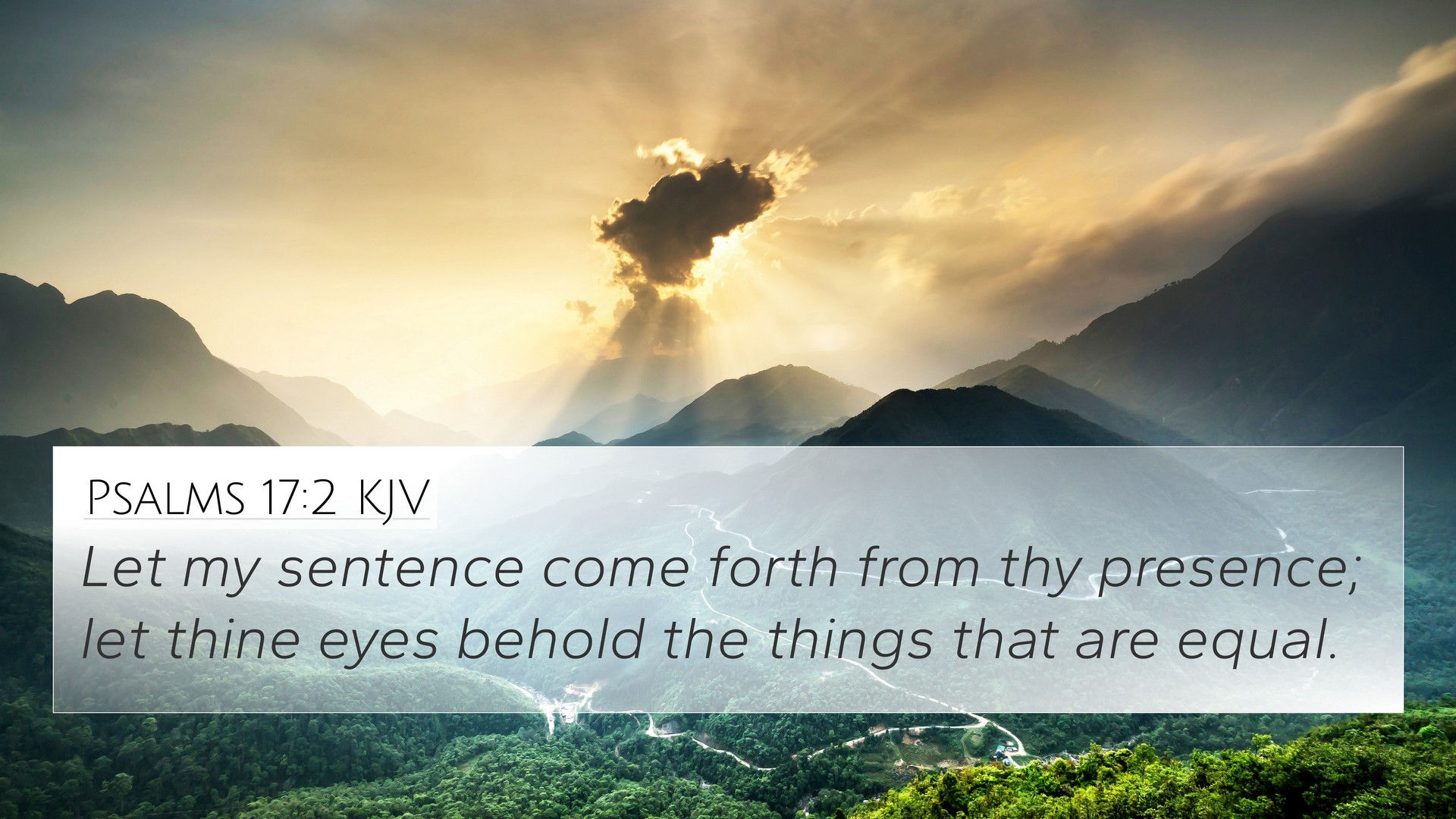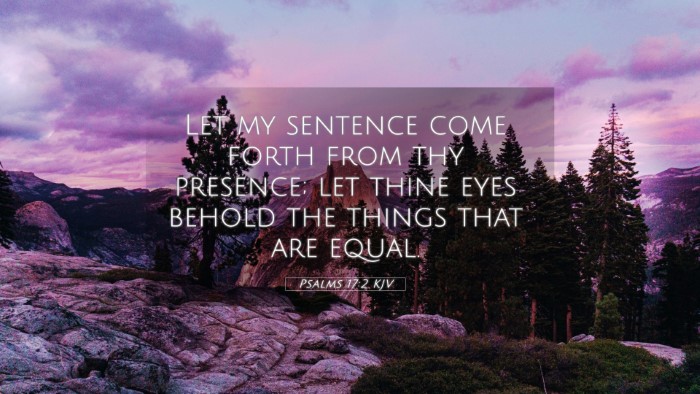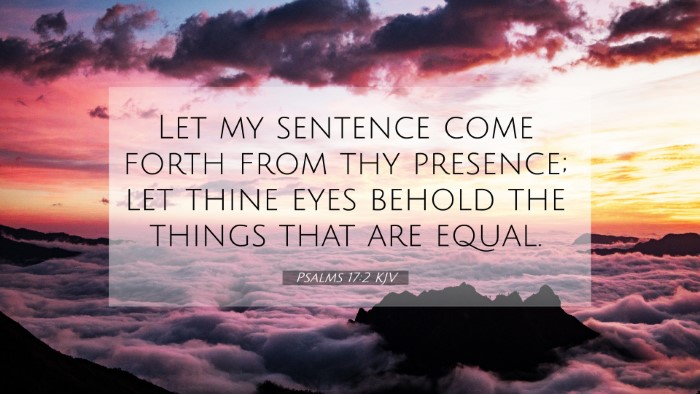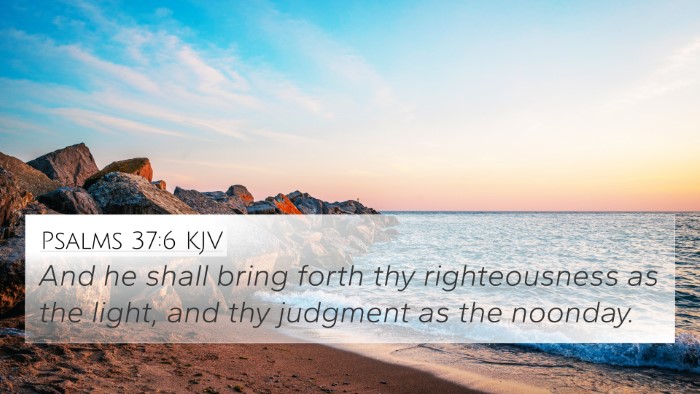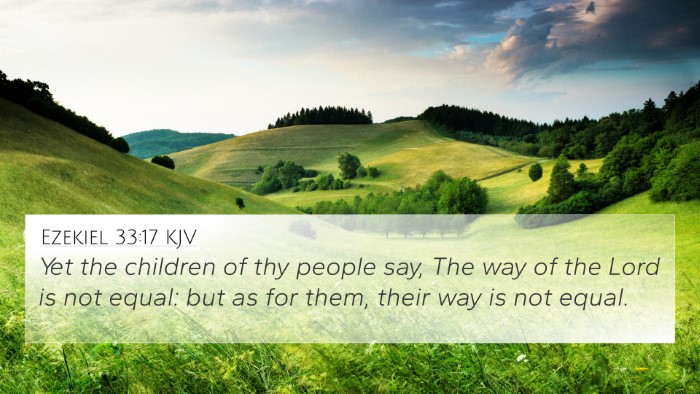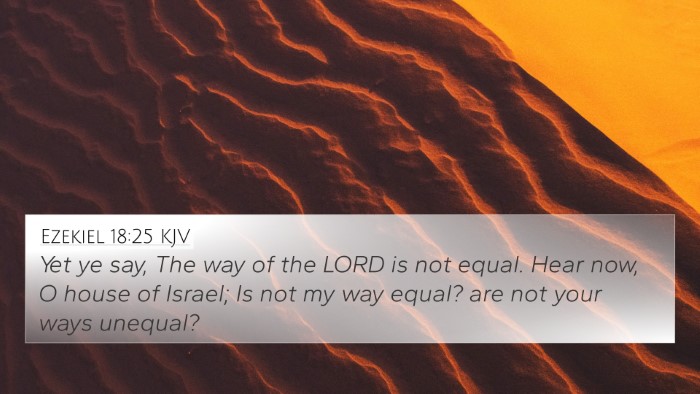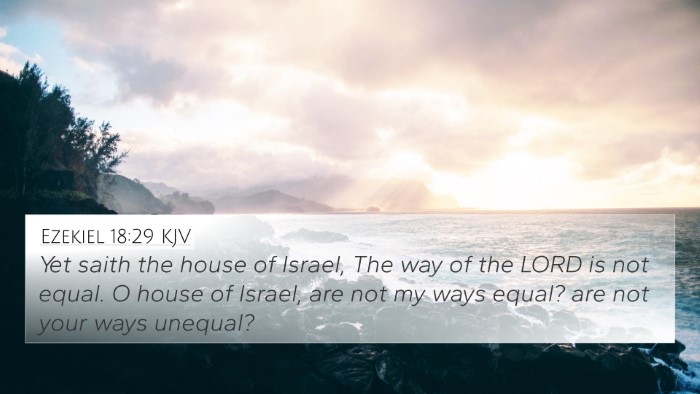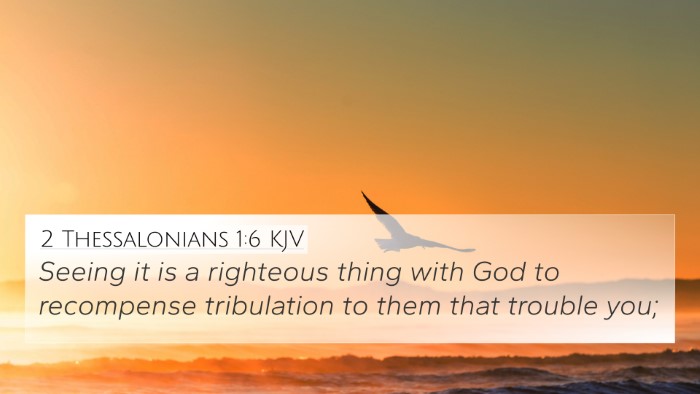Psalms 17:2 - A Comprehensive Analysis
Psalms 17:2 states: "Let my vindication come from you; may your eyes see what is right." This verse expresses a plea for divine justice and an appeal for God's scrutiny and judgment in the face of undeserved trials. The complexity of this verse unfolds when analyzed through various public domain commentaries.
Interpretation and Insights
The verse is a powerful expression of trust in God, reflecting the psalmist’s confidence that God will rightly judge his circumstances. Various commentaries provide insights into its meaning:
- Matthew Henry: Highlights the theme of divine justice, emphasizing that the psalmist seeks vindication from God alone, recognizing that human judgment is fallible. He interprets this as a demonstration of faith, showing a complete reliance on God’s perception of right and wrong.
- Albert Barnes: Points out the significance of God's 'seeing' as equivalent to His understanding and knowledge of the heart. Barnes elucidates that God's view is essential in vindicating the righteous and punishing the wicked, hence the psalmist’s request for divine judgment.
- Adam Clarke: Focuses on the implications of God’s attention to the psalmist's plight, interpreting it as a call for God to observe and judge fairly. Clarke suggests that the verse reveals a deep desire for integrity and justice in the psalmist’s life.
Contextual Background
The historical and literary context enhances the understanding of Psalms 17:2. Many scholars emphasize the psalm's placement within a series of appeals for justice and protection, underscoring its personal nature. The psalmist is in a position of distress, which creates a backdrop for the plea to God for righteous examination of his life.
Cross References
This verse connects with multiple scriptures that explore similar themes of justice, divine scrutiny, and vindication. Notable cross-references include:
- Psalm 26:2: “Test me, O LORD, and try me, examine my heart and my mind.”
- Psalm 7:8: “Judge me, O LORD, according to my righteousness, according to my integrity, O Most High.”
- Jeremiah 11:20: “But, O LORD Almighty, you who judge righteously and test the heart and mind, let me see your vengeance upon them.”
- Proverbs 21:2: “A person may think their own ways are right, but the LORD weighs the heart.”
- 1 Peter 3:12: “For the eyes of the Lord are on the righteous and his ears are attentive to their prayer, but the face of the Lord is against those who do evil.”
- Romans 12:19: “Do not take revenge, my dear friends, but leave room for God's wrath, for it is written: 'It is mine to avenge; I will repay,' says the Lord.
- Isaiah 51:5: “My righteousness draws near speedily, my salvation is on the way, and my arm will bring justice to the nations.”
Thematic Connections
Psalms 17:2 provides a fertile ground for thematic Bible verse connections, particularly around justice, integrity, and the nature of divine judgment. This verse resonates with a larger theological narrative found throughout Scripture—God as the ultimate judge who sees and knows the heart.
Practical Applications
Psalms 17:2 can inform personal devotion and understanding of one’s relationship with God. It serves as a reminder to seek God’s view rather than society's, particularly in difficult times. As believers, it encourages a posture of humility, acknowledging that true justice comes from God.
Conclusion
In conclusion, Psalms 17:2 encapsulates the essence of seeking divine justice and understanding. The insights from public domain commentaries align to emphasize reliance on God’s judgment over human perspectives. As believers engage in bible cross-referencing, they can find profound connections across scripture that deepen their understanding of the nature of God, justice, and personal integrity.
